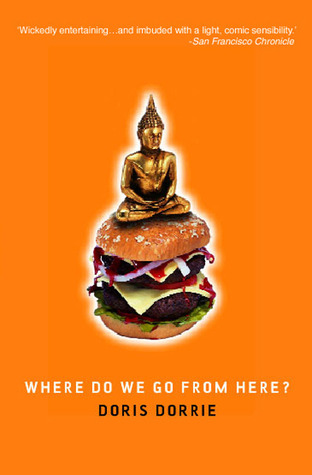Pepperpot: short stories from the Caribbean
So: Jamaica. And: Bahamas. First thing that comes to mind with those names is: long white beaches, ocean breeze, Sun. Reggae music. No real idea about the places themselves, though. It's great that the 2 publishers Akashic books and Peepal Tree Press teamed up and made this collection possible. It includes stories from:
- Trinidad & Tobago
- Jamaica
- Belize
- Barbados
- Antigua & Barbuda
- Bahamas
Here's more about the collection: Publisher's page: Pepperpot: Best New Stories from the Caribbean
Story links
The opening story is also online at Granta, and gives an idea of the different view the collection offers:
The Whale House by Sharon Millar, Trinidad and Tobago
"These offshore islands rise out of the water, rugged and black with deep crevices and craggy promontories. Her father used to tell the story of building the house. Dynamite under the water to blow a hole in the hill, a false plateau appearing like a shelf, the hill buckled up behind it."
And a second story link, from an online magazine that focuses on the Carribean, too,with a focus on poetry, but they also published some stories: Tongues of the ocean – stories
Here is one of them, one that stayed with me:
"Saving Rupa" by Lelawattee Manoo-Rahming, Trinidad
"Yesterday I decide I not running no more. I can’t manage with coming last again. Ever since that time when the boy hold down Rupa, it look like I use up all the speed Maha Devi give me for this life..."
**
Writing Exile
Last week, the new issue of Words Without Borders went live. And it was such a good suprise. The theme of it is: "Writing Exile".Which connects almost perfectly with my recent reads and the blog post about them: "Reading from Chile to Paris to Romania with Gabriel Garcia Marquez, Milan Kundera & Herta Müller, or: home, exile, and fiction (blog post link)"
Here are some lines from the introduction to the Exile issue:
This month we present writing about and from exile. Although not all exiles flee political persecution or war, they have in common an involuntary departure forced by adverse circumstances. In fiction, poetry, and autobiography, writers explore the notions of departure and absence, memory and loss.
Reading it, it made me think that violence is a theme that runs through these days, too - and that exile often is a form of violence: being forced to leave your homeland.
Story links
 The issue includes authors from Syria, Cuba, Uzbekistan and other places, here are some direct links:
The issue includes authors from Syria, Cuba, Uzbekistan and other places, here are some direct links:- Fragile States: Artwork from freeDimensional: the issue also includes a virtual exhibition with artists from Iran, Burma, Cameroon, Zimbabwe, Indonesia, Syria, and Malaysia: "Fragile States explores the physical and psychological experiences of persecution and forced displacement."
- Exiled in Europe: an interview with 3 women writers from the Middle East who currently live in Europe, with some surprise views of exile: "The Iraq that we see on TV today is not the one I was raised in and lived in. It’s like Noah’s Ark. The millions who left, not only for political reasons but in order to have freedom, took a little bit of Iraq with them and preserved it.”
- Bag of the Nation: magic realism short fiction by Osama Alomar, Syria: "I took the big bag that I had inherited from my grandfather down from the attic. It was brightly colored like a storm of rainbows. I hoisted it onto my back and went out into the street. I closed my eyes and began to choose samples at random from everything that was inside: humans and stones and dust and flowers and wind and the past and the present and the future..."
**
Links + More
Reading the world: the collected list of stories is online here: global reading, and a note on the reading journey can be found here: reading the (missing parts of) the world

- Previous short story post: Reading Lolita in Tehran & In Her Place
- The world in 7 books (or: mapping our world by continents)
- More reading notes in this blog: life as a journey with books
- Other book blogs: It's Monday! What are you reading?




















